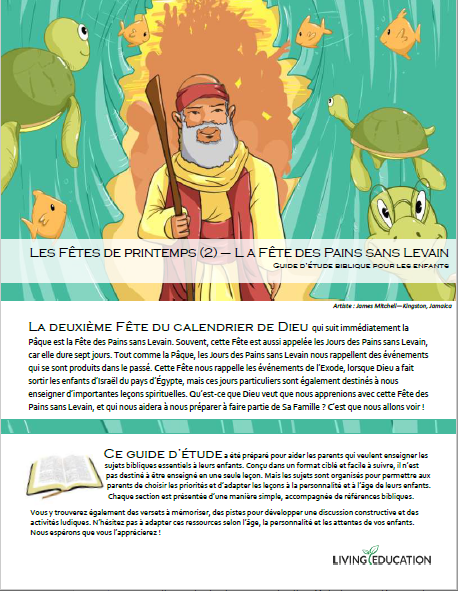Author: Juliette McNair | Student, Living Education Charlotte 2021
Estimated reading time: 4 minutes, 3 seconds.
Mr. Michael Brown pastors two congregations in Saskatchewan, Canada. He spoke to the students about communism and the influence of Marx’s ideologies on modern society. Mr. Armstrong called communism “worldwide psychological warfare.” In 1956, he wrote, “We are not fighting a single nation in a military war, but a gigantic worldwide, plain-clothes army, masquerading as a political party… [It will] weaken us from within… destroying our spiritual and religious life…” After World War II, Mr. Armstrong believed Russia would not attack the West militarily, but psychologically. Communism—or leftism—did not disappear with the dismantling of many communist governments in the twentieth century. As Mr. Armstrong predicted, communism simply took a new form.
What is Neo-Marxism?
Mr. Brown asked, “But what is Neo-Marxism—or leftism—and what is it we can do to protect ourselves?” He gave seven short points on Marxism, taken directly from the leftist “bible,” The Communist Manifesto—the third most assigned textbook in American universities.
First, communism “promotes change through radical action.” Marx believed the solution to historic class struggles in society was the violent overthrow of the rich. Another core goal of Marxism is the “doing away of private property.” Marx claimed that if the working man rebelled against the rich, all wealth would be handed over to the state, ushering in the dictatorship of the working man. Third, communism reflects Marx’s hate for families. Marx wrote about removing “the two bases of traditional marriage—the dependence rooted in private property, of the women on the man, and of the children on the parents.” He believed the traditional family model treated women and children like “oppressed factory workers.” Mr. Brown that communism dissolves distinct nationalities. “Marx believed the working man had no country.” Fifth, communism brings the destruction of all religion, truth, morality, and tradition. Marx wrote, “Communism abolishes eternal truths, it abolishes all religion, and all morality… [It] acts in contradiction to all past historical experience.” Finally, Marx aimed to bring world peace by establishing a utopian world via government. He believed revolution was justified by its results.
“Of all the arts, cinema is most important to us.”
– Vladimir Lenin
During Russia’s Bolshevik rule, Vladimir Lenin promoted his revolutionary agenda by equipping trains with propaganda movies, sending them throughout the country. Joseph Goebbels was Hitler’s Minister of Propaganda from 1933 to 1945. He controlled the German film industry during the Nazi period. In 1941, Goebbels commissioned the film I Accuse, in which a woman convinces her husband to poison her to end her suffering from multiple sclerosis. This film was designed to inspire sympathy for Aktion T4—a program that authorized certain physicians to euthanize patients. Hundreds of thousands of injured or sick people were murdered as a result.
“We all know who the first revolutionary was—an angel named Lucifer.” Today, Satan uses Marx’s ideas to tear down a nation’s belief structure, including the tradition of the family and a belief in God. Mr. Brown emphasized one of the major avenues for this psychological attack is the entertainment industry. Hollywood has weaponized Marx’s ideas to reshape people’s attitudes and pervert their morals. Genesis 19:1 describes the gates of Sodom. Mr. Brown asked, “What types of things do you think you would see at these gates? Today, those gates live in our pockets, our bedrooms, and our living rooms.”
Modern Gates of Sodom and Gomorrah
Christians are to “have their senses exercised to discern both good and evil” (Hebrews 5:23-24). Mr. Brown encouraged the students to analyze the entertainment they absorb for subtle narratives. For example, Rudy, “one of the ultimate underdog films of all time,” falsely portrays the authority figures in Rudy’s life as harsh and unmerciful. In Star Wars, the villains are authoritative and ordered, an evil father tries to destroy his son, and Luke is advised to trust in his feelings—not guidance from wise mentors. “So often in movies,” Mr. Brown said, “good qualities are given to the bad guys and bad qualities are given to the good guys.” Even seemingly innocent children’s movies, like Finding Nemo or Happy Feet, contain subtle, ungodly propaganda. “The audience begins to reshape their personal reality to reflect the reality of the characters and the narrative of the film. As we develop affection for the characters, it can lead to us being accepting of their wrong behaviors.”
What can we do to protect ourselves?
2 Corinthians 6:14 reads, “Do not be unequally yoked together with unbelievers. For what fellowship has righteousness with lawlessness?” Christians can accidentally fellowship with characters on a screen. Mr. Brown explained even virtual, evil company will corrupt good character (1 Corinthians 15:33). “Hollywood and the entertainment industry are the biggest propaganda tools in the world.” While God teaches blessings follow obedience and curses follow disobedience, the entertainment industry lies, showing curses for obedience and blessings for disobedience. Mr. Brown encouraged the students to replace the Hollywood propaganda in their life with wholesome pastimes that impart wisdom and knowledge.
This post is part of our new series of student-written content for LivingEd-Charlotte. These summaries cover topics originally presented by our faculty and guest speakers in our weekly Forum and Assembly. For more Assembly-related content check out our Second Thoughts posts.




